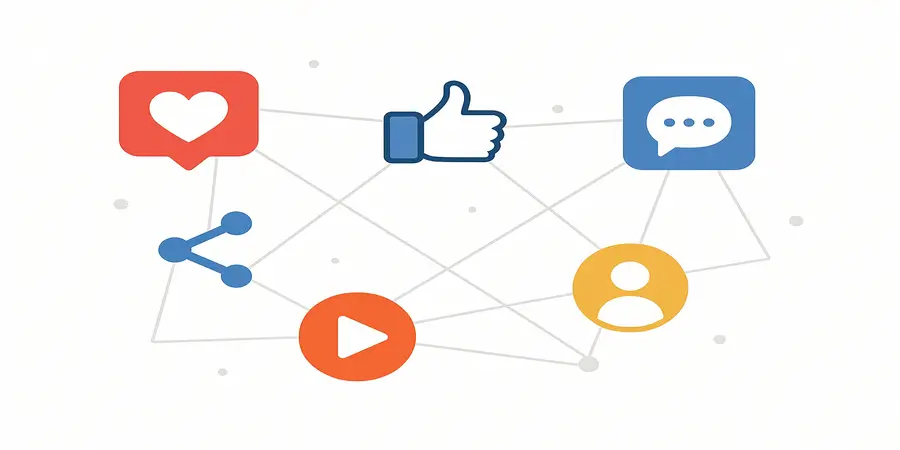Overview and Cultural Significance
The “How Long Do Idiots Live” meme represents a significant phenomenon in contemporary internet culture that emerged as a viral question typically answered with humorous age ranges like “12-15 years” or “12-13 years.” This seemingly simple query has evolved into a complex cultural artifact that reflects modern digital communication patterns, dark humor preferences, and social commentary mechanisms.
Why It Matters:
- Demonstrates the evolution of internet humor and meme culture
- Reveals psychological mechanisms behind viral content consumption
- Illustrates how digital platforms shape collective behavior and social commentary
- Serves as a case study for understanding online community dynamics and cultural transmission
Historical Context and Development
Origins (2017):
- First appeared on Reddit as part of the “How Old Is X” four-panel joke format
- Initially used harmless subjects like video game characters before evolving into more provocative variants
Evolution Timeline:
- 2017-2020: Dormant period with occasional appearances in niche communities
- 2021: Initial viral surge across multiple social platforms
- February 2022: Major resurgence coinciding with TikTok’s explosive growth
- 2024-2025: Continued relevance with new variations and cultural adaptations
Platform Migration:
- TikTok: Primary breeding ground with short-form video content
- Instagram: Stories and Reels featuring screenshot responses
- Twitter/X: Quick sarcastic tweets and viral threads
- Facebook: Community group discussions and shared content
Current State of Knowledge and Practice
Psychological Research Findings:
Recent studies reveal concerning connections between dark humor consumption and antisocial personality traits. A 2024 behavioral sciences study found significant relationships between dark humor appreciation and the “Dark Tetrad” (psychopathy, narcissism, Machiavellianism, and sadism).
Key Research Insights:
- Dark humor serves as both coping mechanism and potential indicator of problematic personality traits
- Strong correlations exist between dark humor enjoyment and online trolling behaviors
- Sadistic tendencies underlie both dark content creation and trolling activities
Current Usage Patterns:
- Primarily used for self-deprecating humor and stress relief
- Functions as social bonding tool through shared dark comedy experiences
- Creates subcultural communities with insider humor dynamics
Major Debates and Controversies
Psychological Impact Concerns:
- Mental health advocates worry about normalizing mockery of cognitive differences
- The term “idiot” carries historical baggage that may perpetuate harmful stereotypes
- Potential to reinforce negative self-perception, particularly among younger users
Cultural Reception Polarization:
- Supporters argue: Represents lighthearted self-acceptance and universal human fallibility recognition
- Critics contend: Inherent cruelty in language choices and potential for psychological harm
- Researchers warn: Connection to antisocial online behaviors and trolling culture
Platform Responsibility Debates:
- Questions about content moderation and harmful meme proliferation
- Algorithmic amplification of potentially damaging content
- Balance between free expression and user psychological safety
Practical Applications and Implications
Digital Marketing Insights:
- Demonstrates power of simple, adaptable content formats for viral marketing
- Shows importance of emotional resonance in content creation
- Illustrates how dark humor can create strong brand community engagement
Educational Applications:
- Case study for digital literacy and critical media consumption
- Example of how online behaviors reflect psychological states
- Tool for understanding cross-cultural humor adaptation and miscommunication
Mental Health Considerations:
- Indicator of coping mechanisms among digital natives
- Potential screening tool for identifying at-risk online behaviors
- Framework for understanding humor as both healthy outlet and warning sign
Future Trends and Predictions
Evolving Meme Longevity:
Research indicates decreasing meme lifespans, but this format’s adaptability suggests continued relevance. The trend toward more sophisticated psychological analysis of viral content will likely influence future meme studies.
Platform Algorithm Evolution:
- Increasing algorithmic sophistication in detecting potentially harmful content
- Greater emphasis on context-aware content moderation
- Potential for AI-driven cultural sensitivity analysis in meme distribution
Research Directions:
- Longitudinal studies tracking meme consumption and psychological outcomes
- Cross-cultural analysis of dark humor acceptance and transmission
- Investigation of therapeutic applications for humor-based interventions
- Development of digital wellness frameworks incorporating meme culture awareness
Regulatory Considerations:
As understanding of online psychological impacts grows, potential future regulations may address viral content that could harm vulnerable populations, particularly adolescents who are primary consumers of this content type.
The “How Long Do Idiots Live” meme ultimately serves as a mirror reflecting both our collective need for humor as stress relief and our concerning tendencies toward online disinhibition and potential cruelty. Understanding these dynamics becomes increasingly critical as digital culture continues shaping human psychological and social development.







